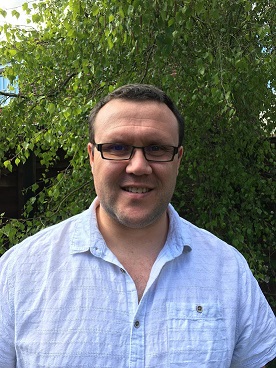 We are delighted to introduce William Emeny, Curriculum Leader and Head of Mathematics at Wyvern College in Southampton. William was the winner of the Pearson Teaching Awards ‘Teacher of the year in a secondary school’ in 2017. He has authored many publications including The Magic of Pineapples and has a wonderful maths blog. We are very pleased to hear his views on educational research. Welcome William.
We are delighted to introduce William Emeny, Curriculum Leader and Head of Mathematics at Wyvern College in Southampton. William was the winner of the Pearson Teaching Awards ‘Teacher of the year in a secondary school’ in 2017. He has authored many publications including The Magic of Pineapples and has a wonderful maths blog. We are very pleased to hear his views on educational research. Welcome William.
How do you stay up to date with the latest education research?
I use the Research Gate website regularly, following the researchers and topics that I am particularly interested in so that I receive email notifications each time there are new relevant publications. I also download papers from the university bio web pages of researchers I am interested in [Note from editor: academic researchers are invariably happy to send research publications if you email them]. Furthermore, I read relevant books on cognitive science, evidence-based teaching etc.
Is it important to you whether the research uses particular methods?
I think there are a number of things which make research useful for teachers and methodology is certainly one of them. My view is that ideally there needs to be a combination of lab-based and classroom-based research.
The lab-based research should follow rigorous experimental design principles (controls, independent and dependent variables, avoiding bias, significance testing etc) to illustrate the impact of specific interventions. Classroom-based research should follow as good experimental design principles as possible without overly compromising the ecological validity benefits, e.g. ensuring the methods of delivery are sustainable in regular lessons in real-world schools etc. There are trade-offs between scientific rigour in experimental design and ecological validity when it comes to classroom-based research, but I see it as essential and complementary to the lab-based work.
It is the classroom-based research which helps teachers translate concepts from cognitive and neuroscience into classroom-based practical teaching strategies. Classroom-based research is also important for showing whether observed principles under controlled conditions in a psychology lab are resilient enough to have an impact in a school classroom environment!
Could you tell us how research has influenced your teaching?
There are two main areas whereby research has influenced my teaching. Firstly, I am very grateful to John Hattie for his ‘Visible Learning’ meta-analysis work in which he meticulously compiled effect size summaries of so many different influences which impact on student outcomes. After reading this work, I adopted Hattie’s “Know thy impact” mantra as much as possible in my teaching. A teacher’s most precious commodity is their time and it is essential that we focus our efforts on things which have the greatest impact on our students’ outcomes. By systematically and rigorously evaluating the impact of our teaching approaches, we can make informed decisions about how to teach most impactfully. Hattie’s “Know thy impact” mantra has led to me take an evaluative approach to any changes I make to my teaching practice. If I’m going to make a change, I first think about how I am going to measure and evaluate the impact the change has (or does not have!). This avoids me going round in circles, trying things multiple times because I don’t know whether they were impactful or not.
Secondly, the research by the Bjorks, Roediger, Rohrer, Karpicke on retrieval, spacing and interleaving effects transformed my practice in recent years. I use retrieval-based teaching strategies regularly in lessons rather than getting students to re-read material. I realised the importance of planning for retention and transfer of learning, not just students’ understanding during first-teaching of an idea. I have built spacing and interleaving strategies into my teaching on a regular, habitual basis and have consequently measured considerable improvements in students’ outcomes.
Could you describe a research-informed idea that you feel has had a positive impact in your classroom?
I implemented distributed (spaced) practice into my teaching by ensuring that once an idea was first taught, I then deliberately planned in further practice opportunities on that topic in multiple future lessons. I also ensured further spaced practice opportunities by deliberately delaying end of unit assessments so they occurred 3 weeks after finishing teaching a topic.
Every maths teacher has experienced students understanding topics when they are taught during lessons, but then failing to remember them later. Learning is as much about building retention of knowledge as it is about acquiring the knowledge in the first place. Research into the Spacing Effect is very robust and the strategies I describe above were one interpretation I made of how to put the Spacing Effect into practice in my classroom.
The impact has been significant with students’ summative assessment scores rising at least twice the previous rate, on average. They are remembering more of what is taught as they go, rather than getting to the end of the course and needing to be retaught so much content.
What do you think researchers should focus on next (i.e. what are the gaps in our understanding)?
The body of research on the Retrieval, Spacing and Interleaving Effects is considerable, but in general it is lab-based studies. There are many challenges that teachers face in order to translate lab-based observed effects into practical sustainable teaching strategies in real-world classrooms. For example, we know we should space out the practice students get on maths problems in order to boost their retention, but what would a good spacing interval be? How many times should they revisit a topic? Do some students need more revisits than others before their learning is retained? Should I space exercises out right from the start or is it OK for students to do some massed practice of a single topic at the beginning of learning that topic? How many exercises should they complete in each practice sessions? Does the number of exercises vary with different types of content? How can I measure whether this approach is working?
These questions cannot be answered with lab-based research; we need classroom-based research that focuses on different approaches to implementing these ideas and measuring their relative impact. Effective classroom-based studies can then be used as case studies for teachers to learn from and to see directly how they can implement these approaches in their own classrooms.
Do you have any suggestions for how communication and collaboration could be improved between teachers and education researchers?
Yes, certainly! Firstly, I believe it is important that people ‘with a foot’ in both the academic and school worlds are identified and empowered to set up collaborative relationships. These could be teachers who are keen to learn experimental methodologies etc and want to conduct classroom-based research, or it could be educational researchers with a particular interest in understanding how to implement impactful practice in real-world classrooms. These people need skillsets and credibility ‘in both camps’, i.e. some teaching experience coupled with some post-graduate training in experimental methodologies. Let’s call them “Teacher-Researchers”. They could talk both the language of the academic and the school-based worlds and be credible and relatable to both teachers and researchers.
The next step would be to empower the Teacher-Researchers with support from Educational Researchers in terms of designing their studies, and from schools who will allow time and resource to conduct the studies in their classrooms. Success hinges on relationships and the Teacher-Researchers need time (and funding) in order to develop and sustain these relationships so they are genuinely mutually beneficial.
The Teacher-Researchers could improve communication in both directions by sharing with Educational Researchers the realities, challenges and opportunities of what is possible in real-world classrooms through the eyes of teachers, and then with the teachers important findings from the academic world about potential effective practices and how to evaluate impact rigorously through the eyes of the Educational Researchers. The Teacher-Researchers are the interface between both worlds with experience and understanding of both.
On a personal note, I intend to focus my career on the Teacher-Researcher role. It doesn’t exist, to my knowledge, yet. I am focusing at the moment on trying to gain research funding to allow me time to adopt this role on a part-time basis and to then demonstrate how impactful collaboration could result from it.
You can follow William on twitter @Maths_Master. Do also check out his great maths blog Great Maths Teaching Ideas and the links including in this blog (particularly the Bjork Learning and Forgetting Lab) for many useful videos and practical teaching suggestions.

